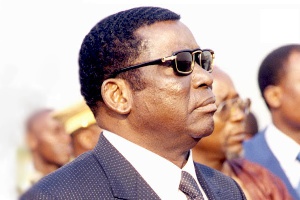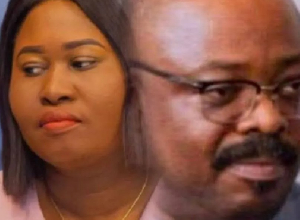The Togolese political crisis takes its roots in the soil of political confusion that followed the death of President Gnassingbe Eyadema who had ruled the country from 1967.
President Eyadema became President of Togo after the death of President Sylvanus Olympio in a military takeover.
The problem started when President Eyadema passed away by natural causes in 2005.
Togo had returned to civilian rule in 1992 after Mr Eyadema had governed the country as a military leader.
By the 1992 Constitution,the Speaker of the Togolese Parliament was to act as President pending presidential elections for a replacement for President Eyadema.
Rather, the 1992 Constitution was amended to permit Mr Faure Eyadema, son of the late President, to act as President.
In 2002, Parliament amended the 1992 Constitution again to extend the two-term limit of President Faure Eyadema to infinity.
As I stated in my last article on the Togolese political crisis published in The Mirror (September 15-21, 2017), the endless political domination by a person or a political party in a country has, in modern political history, been a source of agitation and conflict – some endless and fatal.
That is why it is entrenched in most Constitutions of democratic countries worldwide that term-limit of two times in office should be enough for the President of a country to quit.
There are a few exceptions, but those exceptions have not work out in practice to disproof the doctrine of term-limit.
The term-limit doctrine takes account of the fact that electorate in some countries find it difficult or impossible to unseat, through the ballot box, a ruler who has entrenched his stay deep into the cultural and psychological fabric of his nation and its people.
Political leaders who remain in office after amending their national Constitutions wear long faces and sit on powder kegs.
American republicanism has been faithful to the doctrine and many countries have since followed the American example.
The 22nd amendment (1951) of the American Constitution states that “no person shall be elected to the office of the President more than twice…”
Constitutional term-limit “protects a democracy from becoming a de facto dictatorship”.
“Power tends to corrupt and absolute power corrupts absolutely. Great men are almost always bad men...”
The quotation immediately above has been credited to Lord John Dalberg-Acton (1834-1902), an English historian, politician and writer.
There is no reason why the ruler of a nation in Africa or elsewhere in the world should hold on to political office beyond the stipulated period of two terms.
It is in that spirit that I commend the President of Ghana, Nana Addo Danquah Akufo-Addo and the leadership and people of Togo for resolving at the first leg of their dialogue that began on February 19, 2018, to compromise for a lasting solution to the 13-year-old political crisis.
The Lome dialogue was attended by a team of Ghanaian facilitators led by President Akufo-Addo who was the mediator; representatives of the Togolese government; representatives of Union for the Republic (UNIR) Party; representatives of a coalition of 14 opposition political parties; members of the diplomatic corps; United Nations Permanent Representatives; civil society representatives and religious and traditional leaders.
For the first time, the dialogue has led to decisions that can bring a peaceful and amicable solution to the political crisis.
The Togolese opposition political parties have agreed to suspend their endless demonstrations and the government of Togo has decided to grant political pardon and relief to 45 political detainees.
A group of 47 detainees not released will be put before court for possible granting of bail and hearing of their cases.
The follow-up dialogue was expected to deliberate on other pressing issues including the proposed return to the 1992 Constitution and suspension of local and parliamentary elections pending electoral and institutional reforms.
On the outcome of the dialogues, President Akuffo-Addo was optimistic: “Let us pray for the blessing of the Almighty, and we can find a solution that will be in the interest of the people of Togo and, by implication, the people of Ghana.
Opinions of Saturday, 3 March 2018
Columnist: Larweh Therson-Cofie















